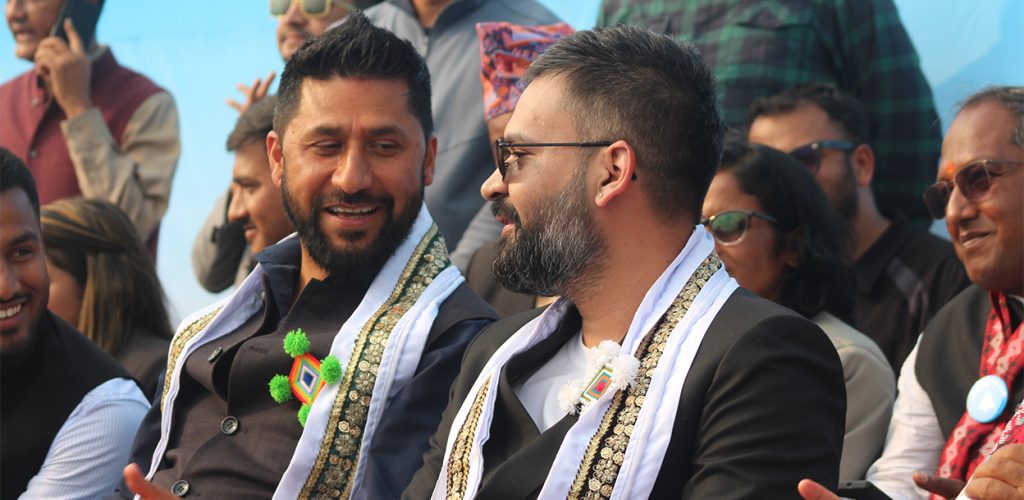
Women in Nepal make up more than half of the population (51.04 per cent). Yet gender equality is imbalanced; they have not been designated the equal rights they deserve. Since time immemorial, Nepal follows a patriarchal society, which means men are considered the head of the household and women are assigned more domestic roles.
From the very beginning, the importance of women’s work is diminished and no matter how hard they work they are still considered nothing but subordinate to men. Meanwhile, modern values insist on gender equality but patriarchal values are still deeply drenched in our mindset that women face discrimination in subtle yet devastating ways.
Several social norms exist even today that deprive women of even basic privileges such as healthcare, education, social status, being able to own property, and basic human rights.
Glitches in the Constitution of Nepal
The 1990 constitution guaranteed fundamental rights to all citizens without discrimination on the basis of ethnicity, caste, religion, or sex, the modernisation of society, along with increased education of the general population.
Nonetheless, it gravely failed to address the concerns of women and while the Constitution of Nepal 2015 has been improved in terms of including rights of women that include rights to lineage, right to safe maternity and reproduction, right against all forms of exploitation, and equal rights in family matters and property; it does contain discriminatory provisions.
One such evidence is that individuals born to a Nepali father are eligible for citizenship regardless of the nationality of the mother, whereas individuals born to Nepali mothers and foreign fathers are only eligible for naturalised citizenship.
Reportedly, three UN human rights experts had written to the government raising concerns that “the bill would continue to discriminate systematically against women, regarding their ability to transmit citizenship through marriage and to their children.”
Discriminations restricting women’s empowerment

The constitution may claim to protect and provide but it is the enforcement of such values where Nepal falls behind. It is reported that only about 19.7 per cent of women own land and of this percentage, only about 11 per cent have actual control over their land.
Having the ability to hold down properties and gain monetary autonomy is essential for women. It would allow them to control their finances and gain independence from their spouses making it essential for women’s rights.
Not to mention, several young modern Nepali women are burdened with doing double the work, handling the domestic part of their life while maintaining a job.
Nearly, 26.3 per cent of women are in the workforce. The women in Nepal have difficulty getting paid a respectable wage as the Central Bureau of Statistics, in Nepal, has reported that the biggest pay gap between male and female workers exists in the “professional” category.
The pay disparity is if a male earns Rs 23,800 monthly, a female earns Rs 12,000. And since women are burdened with double the responsibilities it results in them having restricted access to new opportunities, promotions and so on. This ‘pay disparity’ and restricted access to opportunities severely contribute to women’s poverty.
Women also have to fight for respect and dignity from their male counterparts in the workplace. The deeply patriarchal and misogynistic nature of our society has resulted in the view that women are not reliable in leadership roles and are not capable.
Despite the fact that contrary evidence has been found repeatedly, women have flourished in leadership roles and done an incredible job. However, the second-class treatment stays where the women have to suffer for the most basic rights and respect. The National Gross Domestic (NGD) product leaves out a woman’s unpaid domestic work further devaluing the work they do.
The literacy rate between women and men in Nepal stands at 71.6 per cent and 44.5 per cent respectively, showing a huge disparity between the genders. The Nepal Living Standards Survey Nepal reported an adult literacy rate of 56.6 per cent in the year 2010/11.
Young women who get burdened by household chores and societal restrictions are reportedly at a high risk of dropping out of school before even completing primary education. Furthermore, the fact that women are burdened with household responsibilities results in women having restricted access to information, and opportunities in the professional world.
The disparity in the literacy rate is not helped by the fact that women are socially discouraged to focus on education. Young women are forced into a mould of gender roles that society assigns to them, the ‘domestic’ one and are often wrecked with feelings of guilt and shame if they choose themselves over their family or their responsibilities.
Prejudice based on biological identity as women

The treatment of women in Nepal has been historically brutal, women in the past have been subjected to Chhaupadi, (a menstrual taboo custom) and ‘Sati pratha’ which are no longer practised today, yet this ugly past cannot be ignored.
And despite the fact that Chhaupadi was criminalised in 2017, women to this day are subjugated to some form of taboo when they are menstruating. The treatment of women in the present time is not necessarily dignified either.
Demoting their value and integrity to second-class citizens, the Department of Immigration proposed a new amendment in the Immigration Procedure, 2008. According to this, the first-time women travellers who were under the age of 40, required a ‘permission letter’ from their family members and their respective ward offices for the visit.
Upon the news breaking out activists staged a protest outside the Department of Immigration, women basically poured out into the streets and raised their concerns over such undignified treatment of the citizens.
This protest was integral to the women’s rights movement as young women demanded their right to freedom of movement. The law was claimed to be a way to control human trafficking yet the very obvious disrespectful nature of the amendment was apparent to anyone capable of critical thinking.
Women throughout the country questioned the man-led department’s demeaning decision that branded women as second-class citizens.
Nearly 75 years after Nepal got its first feminist organisation—Nepal Women’s Association—we still have a long way to go, to create gender equality. At present, women have shown great success in being leaders, and heroes. We have seen women in the role of presidents, prime ministers, scientists, teachers etc.
They have been a beacon of hope and power to many. They have shown time and again that despite all the restrictions and the challenges they do succeed. Yet, our country has failed to grasp the intensity of gender equality and failed women repeatedly. It has fallen on the shoulders of women to fight for equality, for us and the future generation.
























